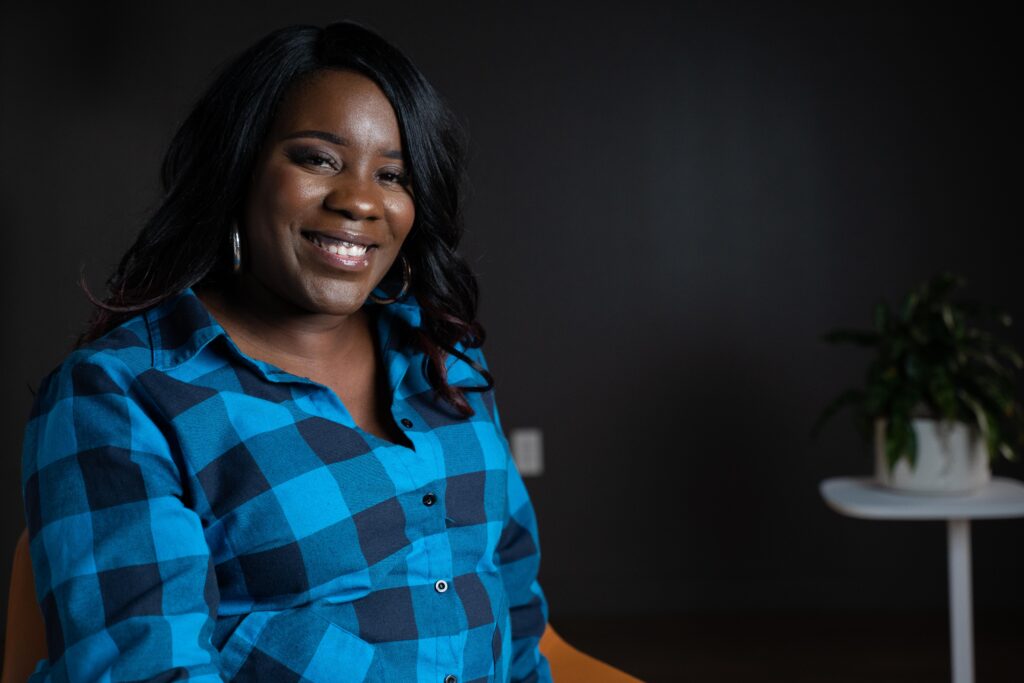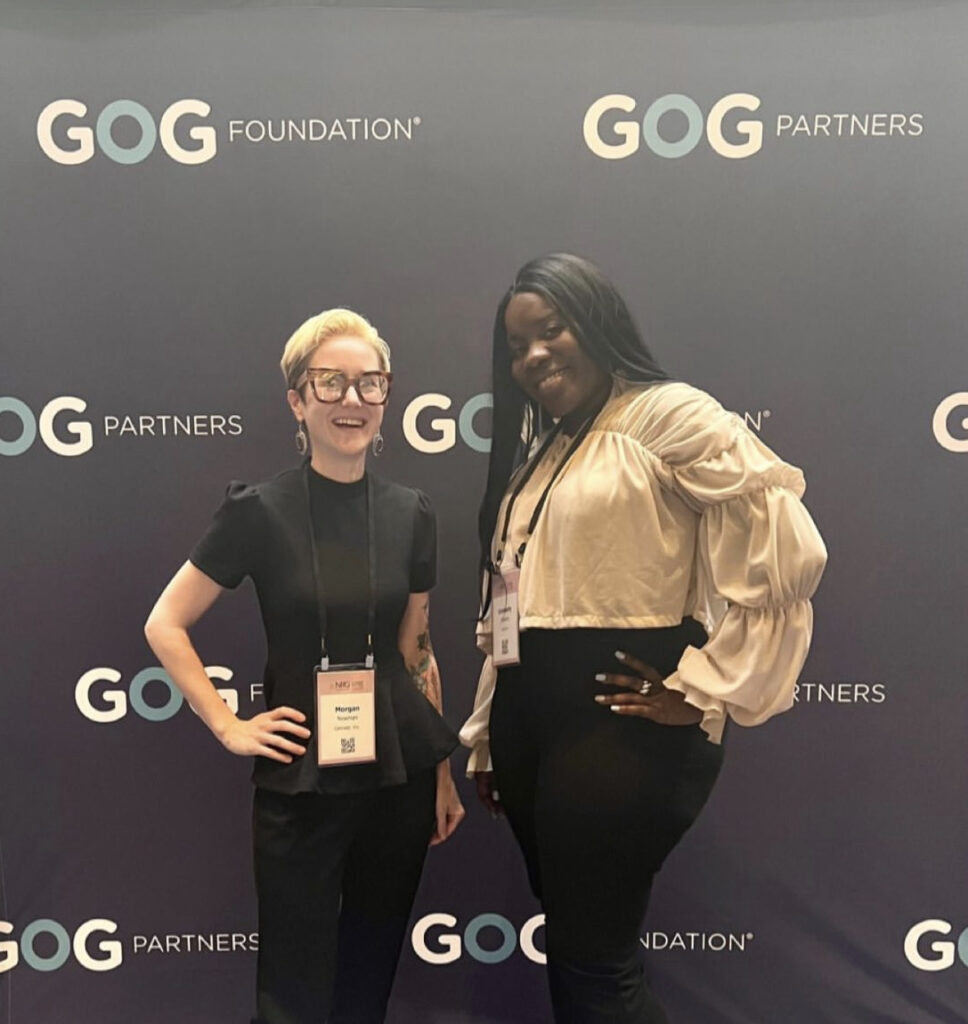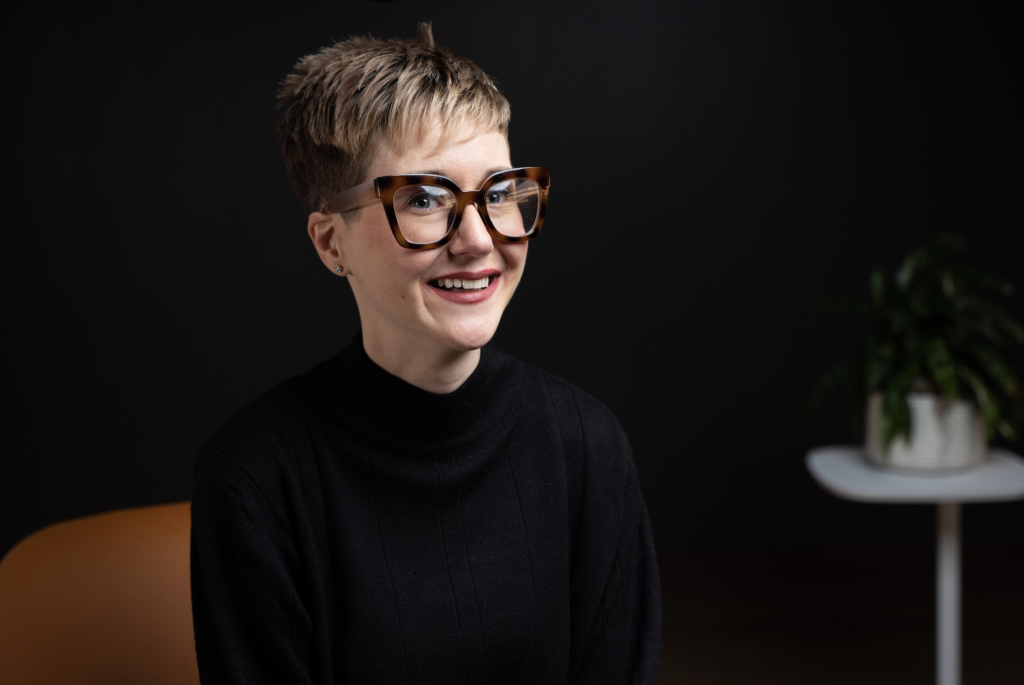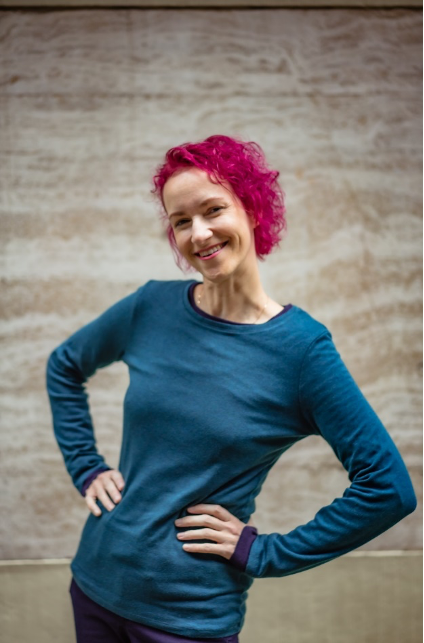
Kimberly Williams, Cervical Cancer Survivor
In July 2022, I was invited to my first NRG Oncology semi-annual conference as a newly appointed Patient Advocate. Many of you might be wondering, who NRG Oncology is and what they do?
NRG Oncology comprises the National Surgical Adjuvant Breast and Bowel Project (NSABP), the Radiation Therapy Oncology Group (RTOG), and the Gynecologic Oncology Group (GOG). Together they have more than 150 years of cumulative experience in conducting practice-defining, multi-institutional phase II and III trials sponsored primarily by the National Cancer Institute (NCI).
I’ve never had the opportunity to attend a large oncology conference like this before. There were so many emotions that ran through my head as my colleague and I rushed hurriedly through the building to locate our next sessions to attend. One thought that came to mind was “the why,” like why am I here? After attending the Patient Advocates forum I found that my why never changed. It was for the patients and for our community.
Sitting in the meeting encouraged me and helped me realize that all the patient advocates desire the same thing: we want change. We are equipped with the knowledge to make a difference. We have lived through this experience personally. This meeting was easy (at least easier than I anticipated) as I spoke about my cervical cancer story and my “why” for patient advocacy.

Just as I thought, “This is simple,” the next morning I sat on the panel for the Cervix and Vulva Sub-Committee with physicians, researchers, and so many more experts. I sat down next to the committee chair, Dr. Charles Leath. It was at that moment I said, “This is not simple.”
I was overwhelmed with emotion but soon felt confident because I understood the presentations as they related to clinical trials because I went through treatment as a patient. This one moment shifted my thoughts from ordinary to extraordinary. I realized that my voice mattered and it was important. The NRG Oncology semi-annual meeting was an opportunity I will never forget because it was a reminder that your “why” should be at the forefront of your patient advocacy.

Morgan Newman, Community Engagement Liaison
I was a patient advocate that was chosen on the other side of the NRG Conference with the GOG Foundation patient advocacy efforts. To understand their organization, let’s look at the history behind the Gynecologic Oncology Group:
- It was founded in 1970 at the American College of Obstetricians and Gynecologists.
- In 1993, the GOG Quality of Life Committee was formed and patient-reported effects of chemotherapy was the main protocol for their clinical trial development to continue to improve patient quality of life.
- And in 2014, their trial GOG-240 showed improved survival rates when bevacizumab was added to chemotherapy for advanced cervical cancer.
Now, this is only a brief glimpse into what this group has accomplished. I was incredibly fortunate to have the opportunity to be one of two Mary “Dicey” Scroggins Patient Advocacy Travel Award recipients. Through this scholarship, I was honored at the GOG Foundation dinner, attended working committee meetings, and learned from the dedicated professionals leading the work in developing clinical trials.
What I learned during this conference was that the GOG has set the standards for cervical, endometrial, and ovarian cancers. They continue in partnership with NRG Oncology to strive for a better future for patient care and outcomes in clinical trials. This experience has made me feel like I was truly part of that process.
When I was diagnosed with a metastatic recurrence of cervical cancer in 2016, I never would have imagined being where I am today as a patient advocate. I really didn’t understand or know how my voice could help make a difference but every time I have an opportunity to attend and interact with experts in the field, I am quickly reminded just how important it truly is and how far I have come since then. Sometimes these feelings are hard to put into words. It can be overwhelming to experience this as a survivor and a patient advocate but it’s something I appreciate and I am forever grateful for.
Kimberly Williams and Morgan Newman are both cervical cancer survivors turned patient advocates. Kimberly represents her state of Texas while Morgan is in Iowa. They are both passionate about making sure the patient voice is heard.

